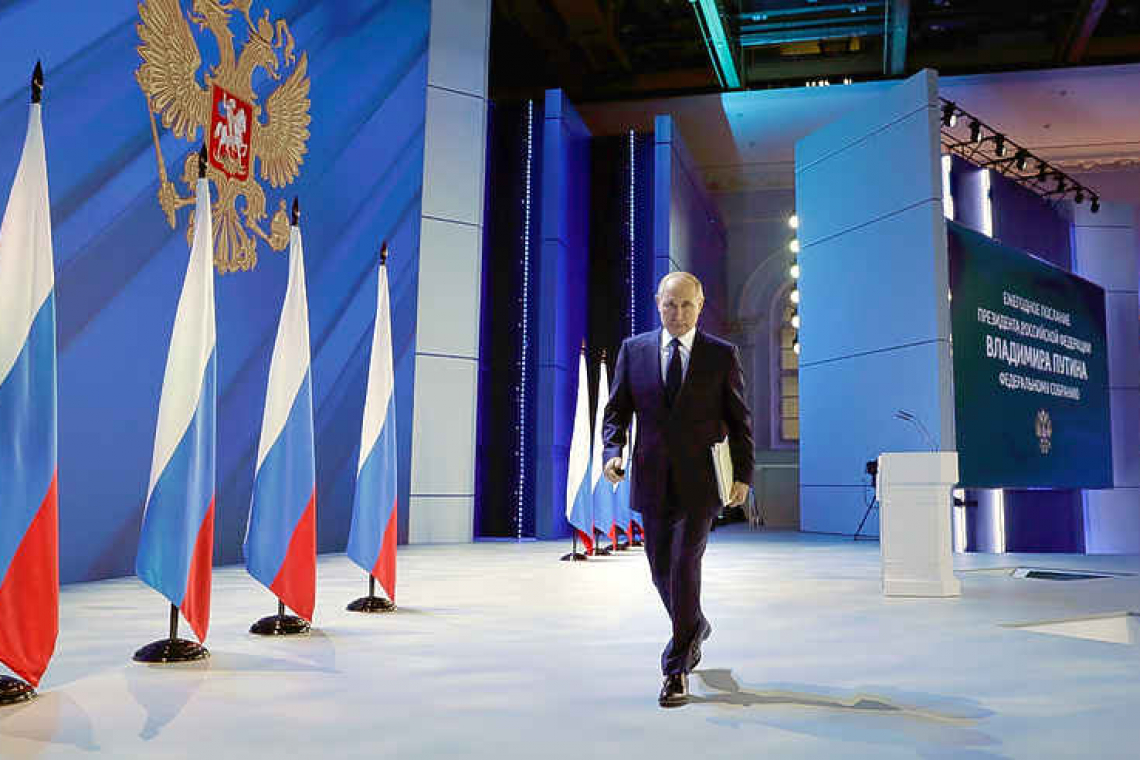MOSCOW--President Vladimir Putin warned the West on Wednesday not to cross Russia's "red lines", saying Moscow would respond swiftly and harshly to any provocations and those responsible would regret it.
At a time of acute crisis in ties with the United States and Europe, with Russian troops massed near Ukraine and opposition leader Alexei Navalny on hunger strike in jail, the Kremlin leader used his state of the nation speech to project a message of Russian strength and defiance in the face of outside threats.
"We want good relations and really don't want to burn bridges," Putin told both houses of parliament. "But if someone mistakes our good intentions for indifference or weakness and intends to burn down or even blow up these bridges, they should know that Russia's response will be asymmetrical, swift and harsh."
Russia would determine where its red line lay in each specific case, he said, comparing those who attack it to hyenas led by a tiger. His comments came at the climax of a speech dominated by Russia's response to the COVID-19 pandemic and resulting economic hardship. Putin announced new social support measures for families with children ahead of a September parliamentary election.
He adopted a sterner tone when setting out foreign policy. "In some countries, they have developed a highly unseemly habit of picking on Russia for any reason, and most often for no reason at all - a kind of sport," said Putin, standing alone on a vast stage flanked by white, blue and red national flags and a backdrop of a giant double-headed eagle. "Organisers of any provocations that threaten our core security interests will regret what they have done like they've never regretted anything for a long time."
Putin, who is 68 and has dominated Russia for two decades, made no mention of Navalny. The opposition politician is ill in prison after starving himself for three weeks to demand access to his own doctors. The rouble firmed after Putin's speech, with markets interpreting it as not escalating tensions with the West.
Recent weeks have seen an intensification of confrontation between Russia and Western countries, which are alarmed by Navalny's worsening condition and by what they say is the massing of tens of thousands of Russian troops near Ukraine and in Russian-annexed Crimea.
Washington last week tightened sanctions on Russia over accusations of computer hacking and election interference, and the Czech Republic accused Moscow of a role in explosions at an arms depot in 2014. Both expelled Russian diplomats. Russia denied wrongdoing and responded with tit-for-tat expulsions.







